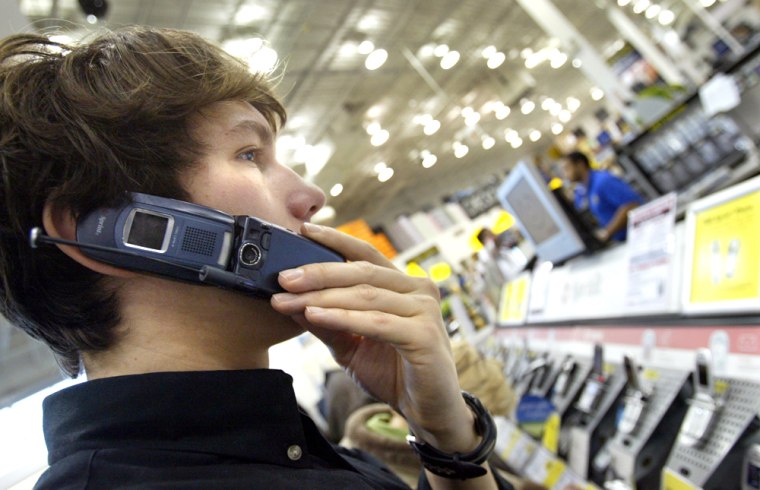The proposed merger of Sprint Corp. and Nextel Communications Inc. could face a rocky start as the companies work to run and eventually merge two wireless technologies without breaking the bank or losing customers.
On the surface, it's as though a bride and groom decided to tie the knot even though they don't speak the same language. Though a happy, long-lasting marriage isn't out of the question, a considerable amount of effort is required.
Nextel was something of a loner in the wireless standards it used, and now its suitor will have to make adjustments beyond the usual merger challenges.
"A lot of us who watch the industry tended to feel it was unlikely (Nextel) would be able to hook up with a partner just because it seems ... the costs of uniting two networks built around very different technologies would be almost too high to pull off in any kind of reasonably efficient way," said Joseph Laszlo, a senior analyst at Jupiter Research.
Tale of two technologies
With Nextel, Sprint is acquiring 15.3 million subscribers and a network based on Motorola's Corp.'s Integrated Digital Enhanced Network, or iDEN, digital radio technology.
But iDEN doesn't work with the Code Division Multiple Access, or CDMA, the standard used by Sprint's 20.1 million existing subscribers.
For the combined Sprint Nextel to take full advantage of the merger, a lot of infrastructure -- the base stations and other equipment that carries calls -- would have to change. In addition, customers would have to get new phones.
Nextel and Sprint say they have a plan that won't be so disruptive. But it's also not cheap.
Once the merger is complete next year, the combined company will keep its iDEN network running "for some period of time," said Tim Donahue, Nextel's chief executive. But eventually all the infrastructure will be transitioned to CDMA.
It will require considerable effort and expense. For one, all the iDEN hardware will have to be updated. Any iDEN phones used by customers will have to be switched as well.
In the meantime, Motorola is expected to provide what's called a dual-mode phone capable of connecting to both the iDEN and CDMA networks.
It's a greater challenge than what faces Cingular Wireless LLC after its recent $41 billion purchase of AT&T Wireless. In that case, both companies used Global System for Mobile Communications, or GSM. Interoperability is possible through a software change.
Opportunity seen with new spectrum
But even though Sprint and Nextel are not compatible, said Bill Choi, senior analyst at Kaufman Bros. they could leapfrog the competition by moving to a more advanced wireless technology altogether.
After all, Nextel has had plans to make a switch from iDEN, which is not designed for high-speed data transfers increasingly demanded by consumers -- long before the merger was announced.
It was already working with Motorola to develop a CDMA-based wireless standard as well as other, more future-proof technologies.
Nextel was also so planning to shift its service to a different part of the spectrum so that that it didn't interfere with emergency response radios.
"By Sprint acquiring Nextel, they're going to get an additional spectrum," Choi said. "In that new spectrum, you can put in whatever you want."
But in the near-term, any cost savings from combining the companies may be lost as Sprint Nextel runs two separate networks, Timothy Horan, an analyst at CIBC World Markets, wrote in a research report.
And aside from the underlying wireless standards, Nextel's customer base tends to skew toward businesses. That presents yet another challenge for Sprint and its handset suppliers, who have been traditionally focused on consumers.
There's a significant risk if the new company's equipment isn't rugged enough or if customer service deteriorates, said Lance Wilson, director of wireless research at ABI Research.
"My greatest concern is: Will Sprint be able to retain the Nextel business customers? I don't think that's a given," he said.
